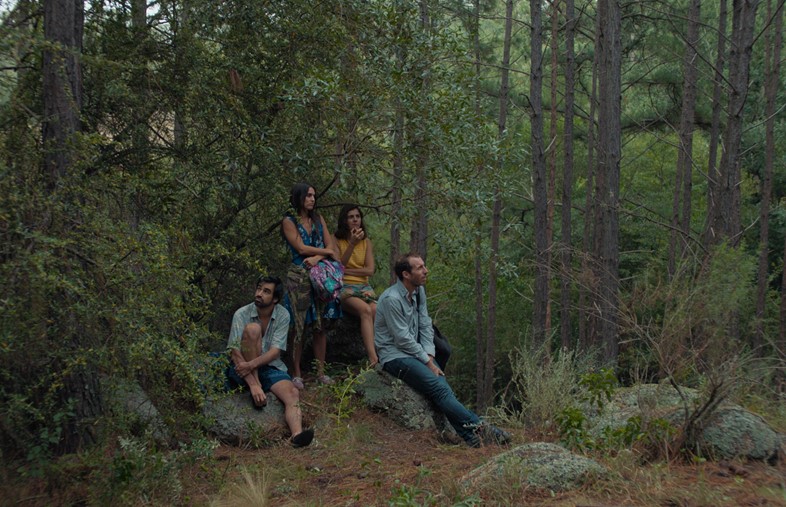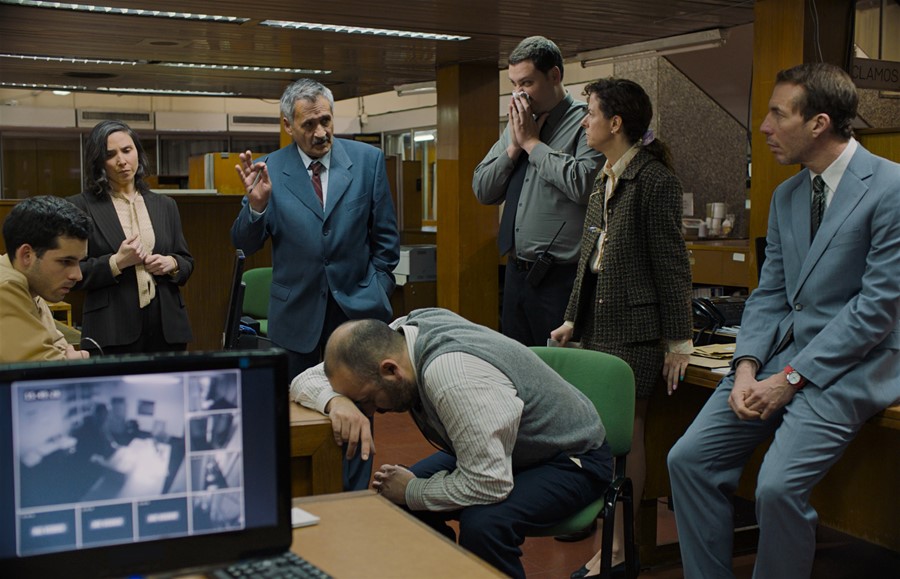Rodrigo Moreno’s three-hour, Argentinian comedy-drama follows a bank robber who steals just enough so that he doesn’t have to work ever again
Typically, in heist movies, the crooks steal enough to be rich, wealthy, or whatever it is that George Clooney and Brad Pitt become at the end of Ocean’s Eleven. Rodrigo Moreno’s The Delinquents, one of the best films in recent memory, does something different: a bank robber nabs $650,000, an approximation of how much he and a friend would earn if they stayed in their jobs until old age. The goal, then, isn’t to become a character from Ocean’s Eleven, just an early retiree with enough leisure time to binge the Ocean’s franchise if they felt like it.
A three-hour, Argentinian, anti-capitalist comedy-drama in which time often seems to stop, The Delinquents is more of an existential shaggy-dog story than a how-to guide for wannabe criminals. Full of laugh-out-loud twists and discussions of poetry, the film gets it drolly simple bank robbery out of the way in the first 30 minutes and instead concentrates on what might be more valuable than cold, hard cash. “Free time is essential for our existence,” Moreno tells me while, ironically, on a train from Paris to Toulouse, in between work assignments. “Maybe this is the first heist film in which money is less important than time.”
In Buenos Aires, Morán (Daniel Elías) is a bank clerk who goes so unnoticed at work, he stays late one day and walks out with the $650,000 in a sports bag. At a nearby fast-food joint, Morán surprises a colleague, Román (Esteban Bigliardi), with the money and a side of extortion: Morán will turn himself in and accept a brief stint behind bars, while Román will hide the loot until the end of Morán’s sentence; if Román refuses, Morán will name him as an accomplice. Morán sums it up neatly: “Three and a half years in prison or 25 years in the bank?”
Morán, however, encounters complications in his strategy, not least when life in incarceration proves similar to the nine-to-five drudgery he was escaping: the bank’s boss, Del Toro, and a prison gang leader, Garringcha, are humorously played by the same actor, Germán de Silva. “It can be read that work and prison are the same,” says Moreno. “But I don’t need metaphors. The reason for having this actor in both roles was to play with doppelgangers and mirrors. I use split-screen and anagrams. I’m not interested in being realistic. I’m telling a fable.”
The cosmic coincidences become more apparent when Román flees to the countryside in order to bury the money, only to encounter a woman, Norma (Margarita Molfino), whose name is yet another anagram. Before then, Román crosses a river, sleeps in the sun, and struggles with an incoherent map. This image is thus of someone who’s both free (considered good) and totally lost (considered bad), suggesting that freedom and being lost are the same thing. Moreno, though, counters that he’s simply deviating from “most films and series on platforms” with scenes that don’t always push the narrative forward. “In this film, I’m talking about productivity and unproductivity, and so the film has to match the content.”
Premiering at Cannes, The Delinquents was awarded five stars by the Guardian (“this could be a cult classic”) and earned acclaim from international critics. “The film is universal because everybody has to work,” the director says. “Everybody dreams of changing their life.” He laments how lockdown working habits have remained in a post-pandemic world. “Now everyone works physically and virtually at the same time, which means you’re always available to work, which is crazy. Your boss is authorised to send you things outside of your working hours.”

Moreno intended to shoot The Delinquents in three stages with lengthy gaps in between to emphasise the changing of the seasons. However, various obstacles – COVID-19, funding falling through, Bigliardi joining Society of the Snow – meant principal photography started in 2018 and ended in 2022. “I was totally convinced I had to include the pandemic and have all the characters in masks,” Moreno says. “But my costume designer was totally angry about this decision. She said, ‘Please, don’t do it.’”
While Moreno ultimately followed his costume designer’s advice, he made other drastic alterations during the protracted shoot, such as rewriting his initial plan for Román and Morán to both be willing criminals from the start. “I won’t spoil the story for Dazed readers, but the very ending was something I invented on the last day of shooting,” the director says. “It was such a risky decision. It took me all of the shoot to understand what the film was about.”
“The film is universal because everybody has to work... Now everyone works physically and virtually at the same time, which means you’re always available to work, which is crazy” – Rodrigo Moreno
My conversation with Moreno is during the week that The Delinquents hits UK cinemas. Having watching all three hours in a theatre during the London Film Festival, I can’t imagine it any other way. I will, at least, never forget the person next to me quietly swearing under his breath when “End of Act One” appeared after 90 minutes. It is, I concede, a bit of a love/hate proposition. “Every time I’m framing a shot, or I’m mixing the sound, I’m thinking of that big, oversized screen and dimension,” says Moreno. “In order to appreciate the mise-en-scéne and experience the passing of time in this film, it’s very, very important to watch it in a theatre.”
When I ask why the film is 180 minutes in length, Moreno notes that his previous cut was four hours long. “Because the film is about the passing of time, it has to take its time to be seen and appreciated,” he says. “Román and Morán make their revelations after having unproductive time, and the way to convey that experience to the spectator is through time. The good part is, it could have been worse: I did the audience a favour. It could have been five hours. Now it’s three.” He adds, “Go to the toilet before. Three hours is not so much.”
The Delinquents is out in UK and Irish cinemas now










